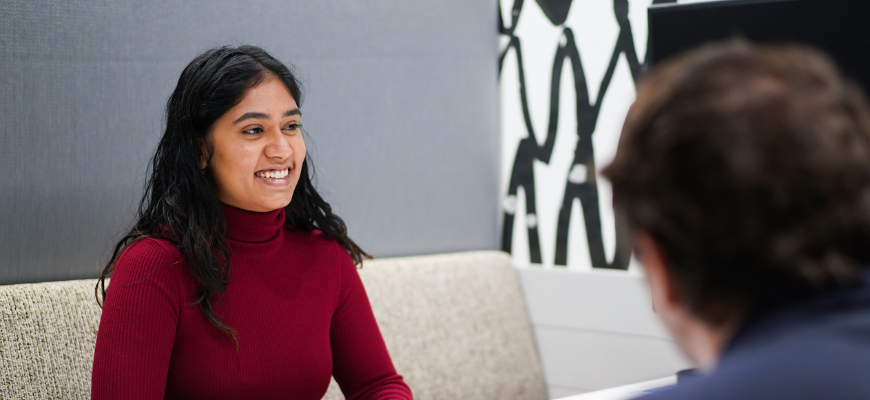Make the most of your interview

Get ready for a great interview at nbn with the following tips:
Prepare for your interview by taking time to learn about our company – you’ll find lots of information here on nbn’s website, and on our LinkedIn, Facebook, Instagram and YouTube channels. Also make sure you’re familiar with the role you’re applying for by thoroughly understanding the job description.
Think about the personal skills and attributes that make you right for the role. Match these examples with the job’s requirements to help you confidently and concisely talk about your suitability.
While an interview isn’t about memorising information or a rehearsed speech, it helps to think about potential answers to questions you may be asked. This is particularly handy if there’s lots of information you want to share.
Demonstrate your competency during an interview using the ‘STAR’ technique.
Based on the idea that the past is the best predictor of the future (behavioural interviewing), we’ll ask for specific examples of past situations that demonstrate your competency.
For example, tell me about a time you solved a complex business problem.
Use the ‘STAR’ technique to provide a thorough answer:
S - Situation
"When I first joined XYZ company, there was no policy in place to prevent employees speaking to the media. This created problems such as inconsistent messaging, premature information release and a range of other undesirable consequences for the company."
T - Task
"As the Media and PR Manager, it was my role to build, maintain and protect a positive corporate image, so I decided that we needed a policy to enable this."
A - Action
"I designed and implemented a policy whereby only four nominated executives had the authority to deal with the media, and that all media and PR material had to be approved by me before being signed off by me. I took the time to gain the buy-in of all employees so that everyone was happy to adhere to the new policies."
R - Result
"As a result, I was able to protect the company's corporate image and create a more positive attitude to our brand as evidenced by a recent independent survey."
This lets you succinctly describe your abilities and experience to your interviewer. If they want to know more, they may ask a follow up question for more details around the ‘How?’ and ‘Why?’ of your example.
An interview shouldn’t be one-sided. Learn more about nbn and the role by asking informed questions. This will help you make the right career decisions and show your interest in the role.
Make a great first impression by arriving on time. Reduce pressure before the interview by planning ahead and giving yourself plenty of travel time.
If you have any questions during the interview process, please contact your recruitment representative.
